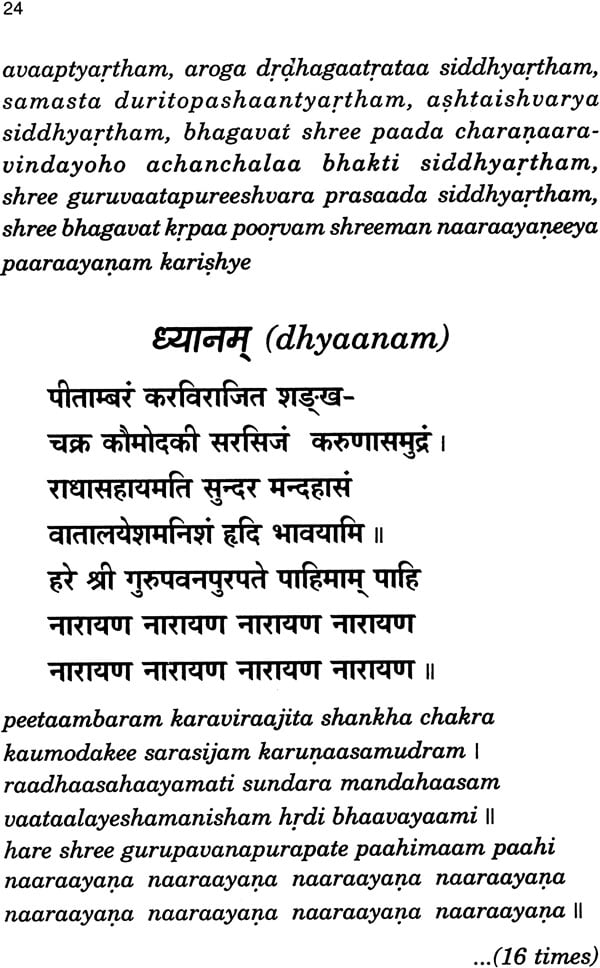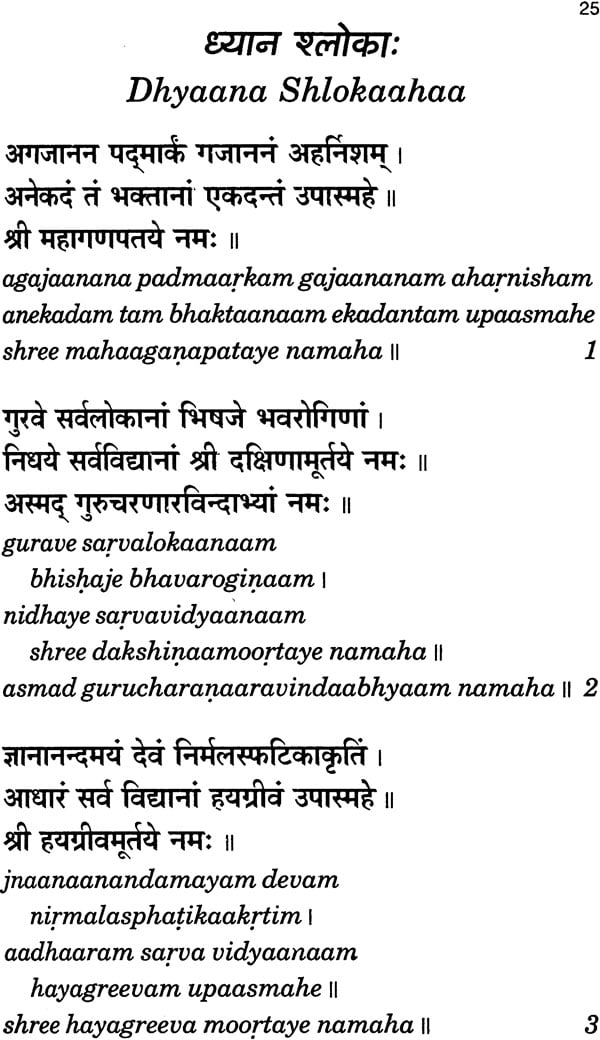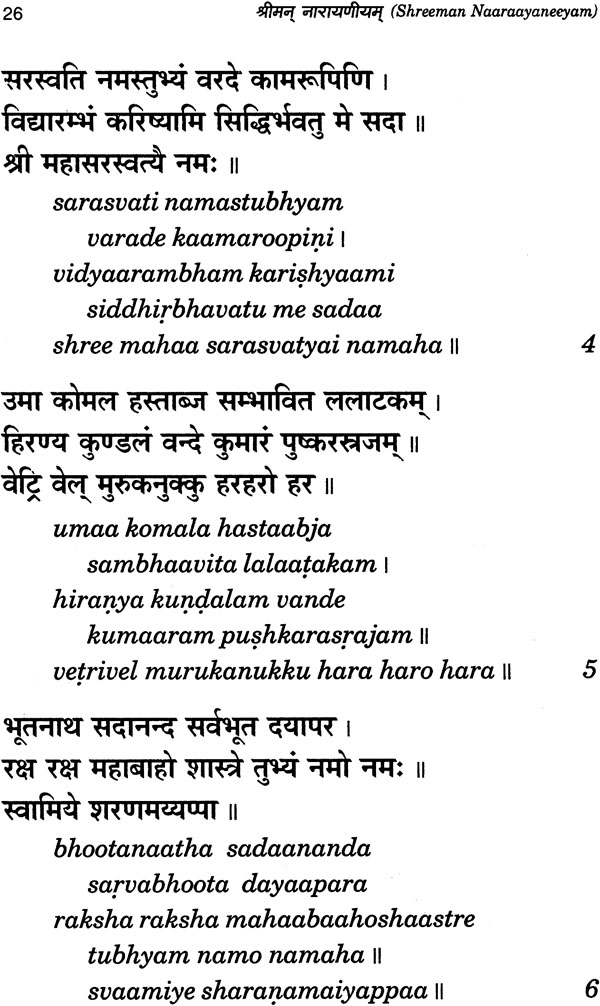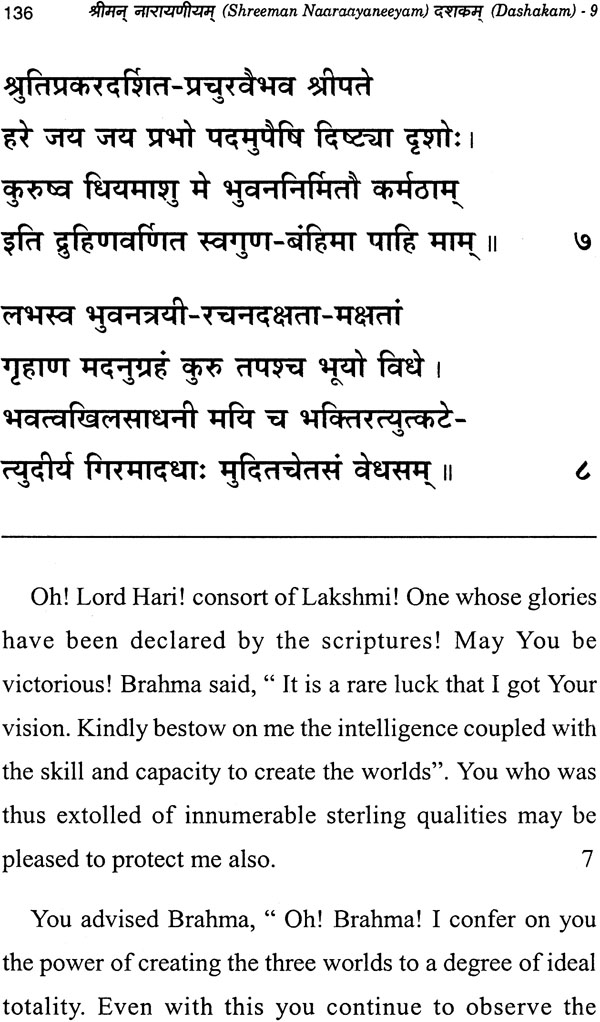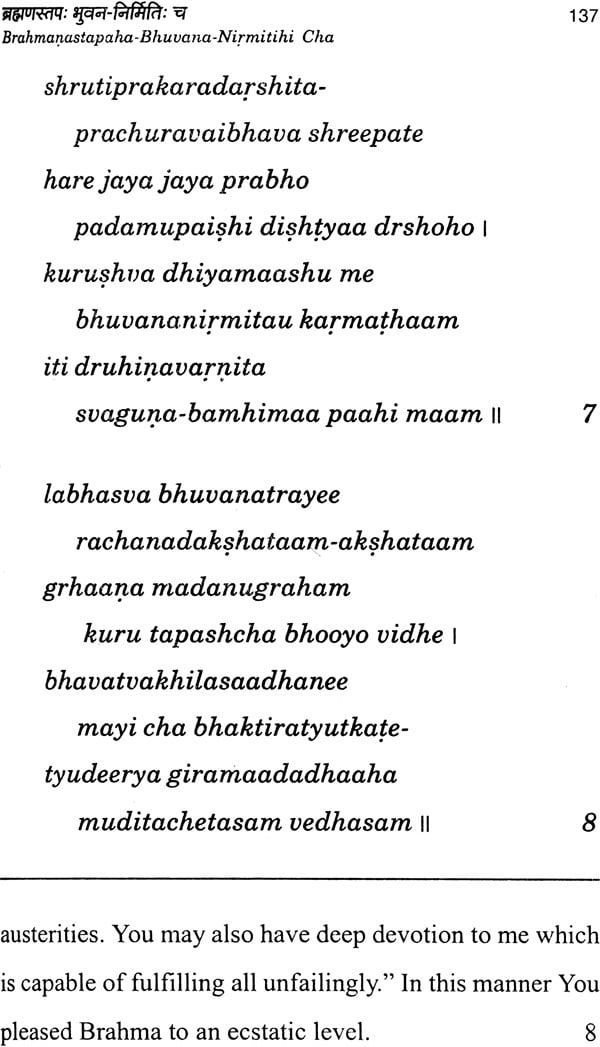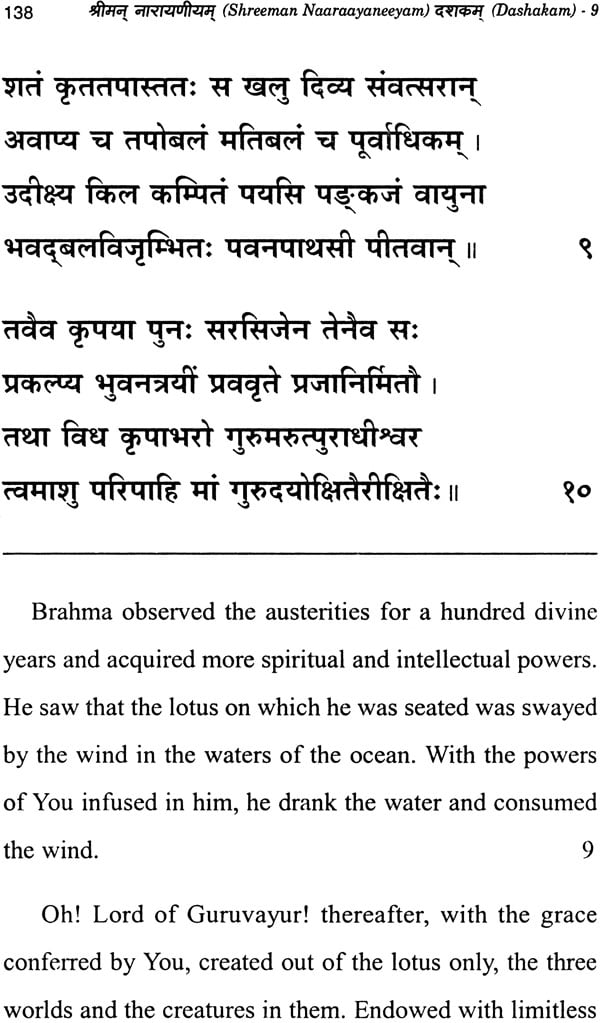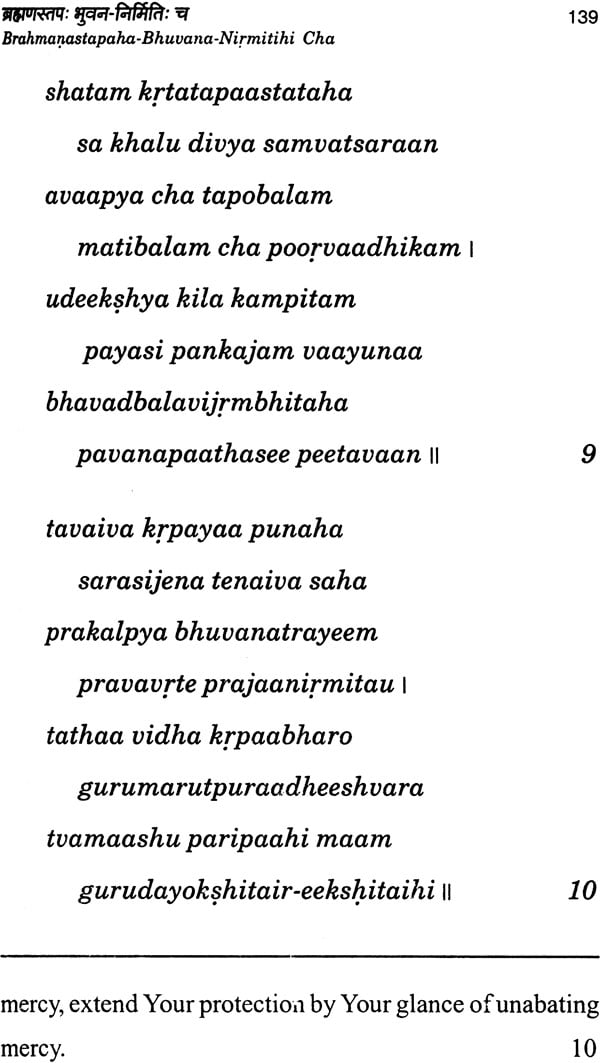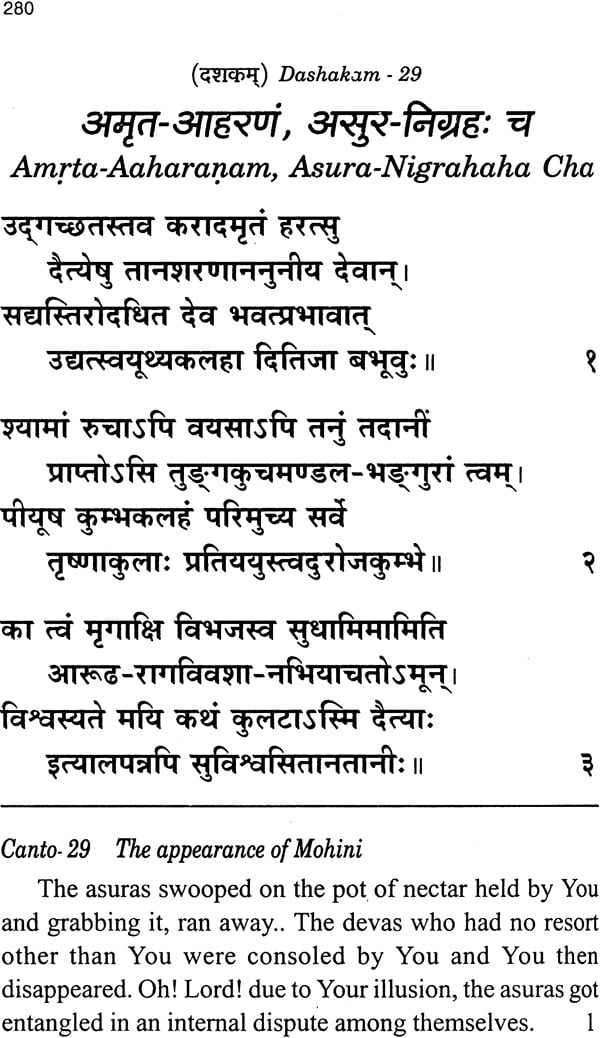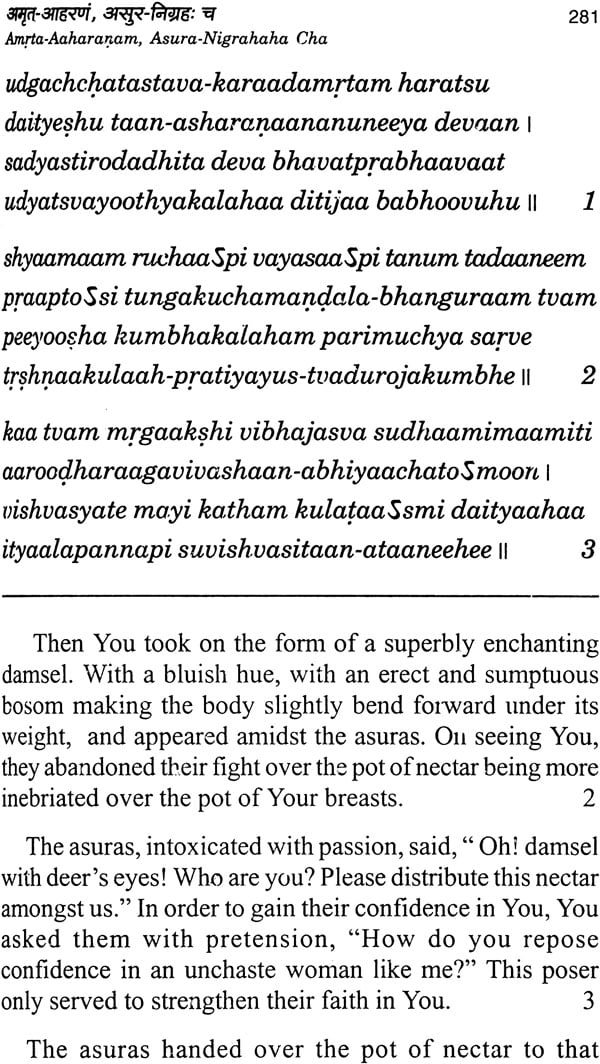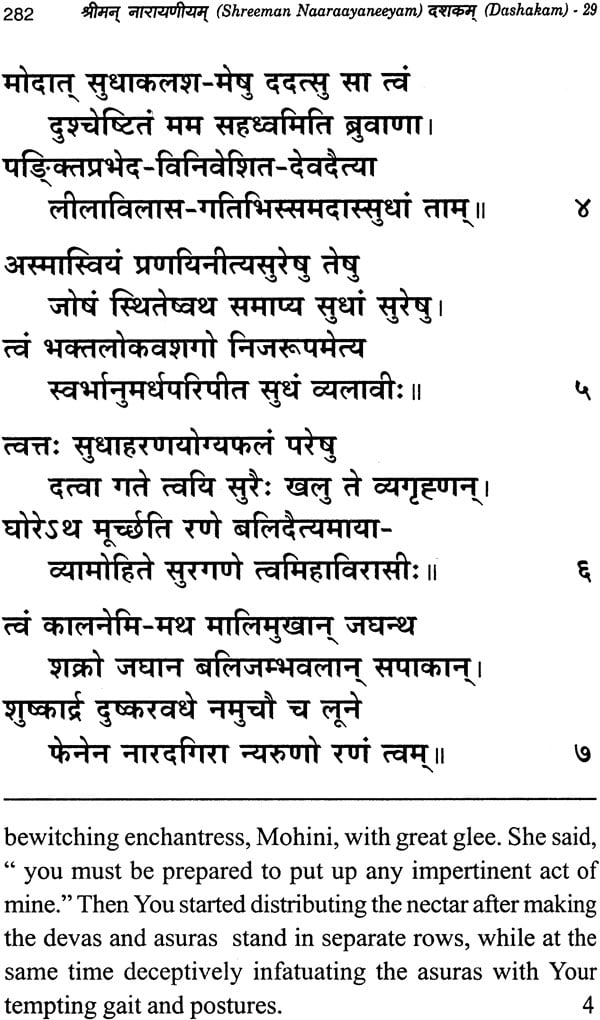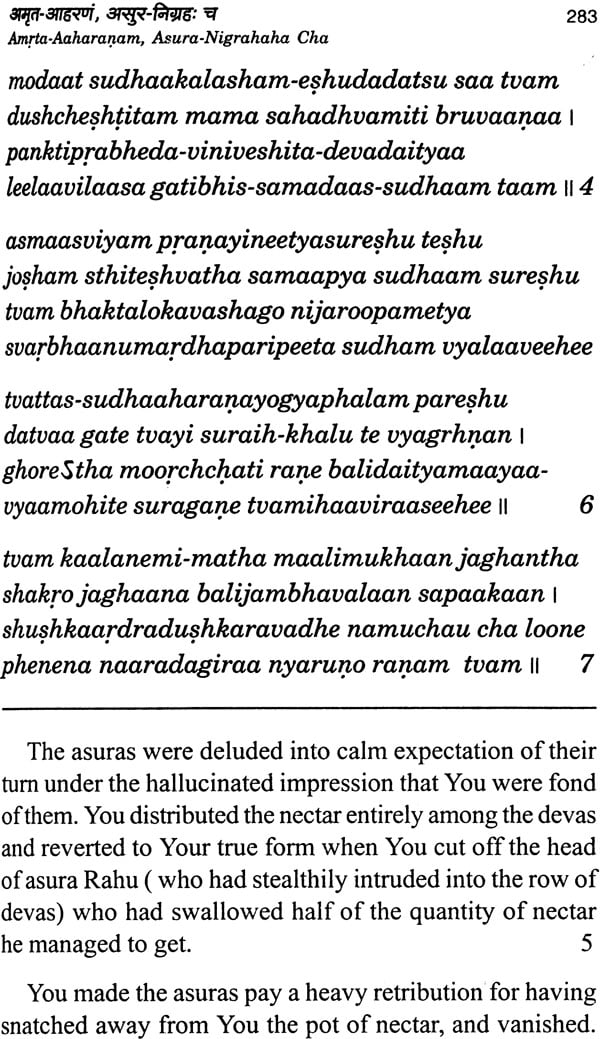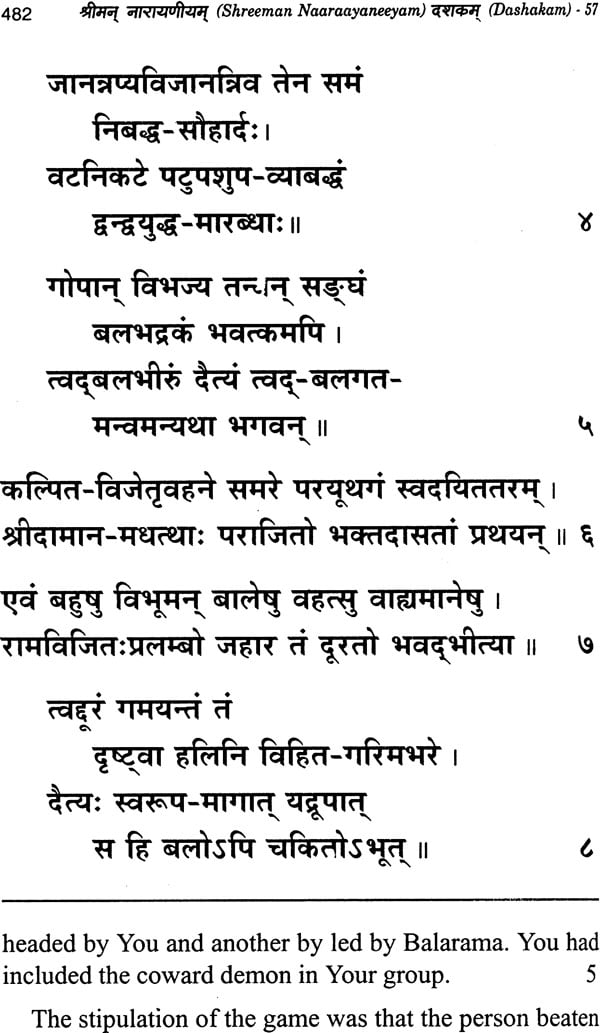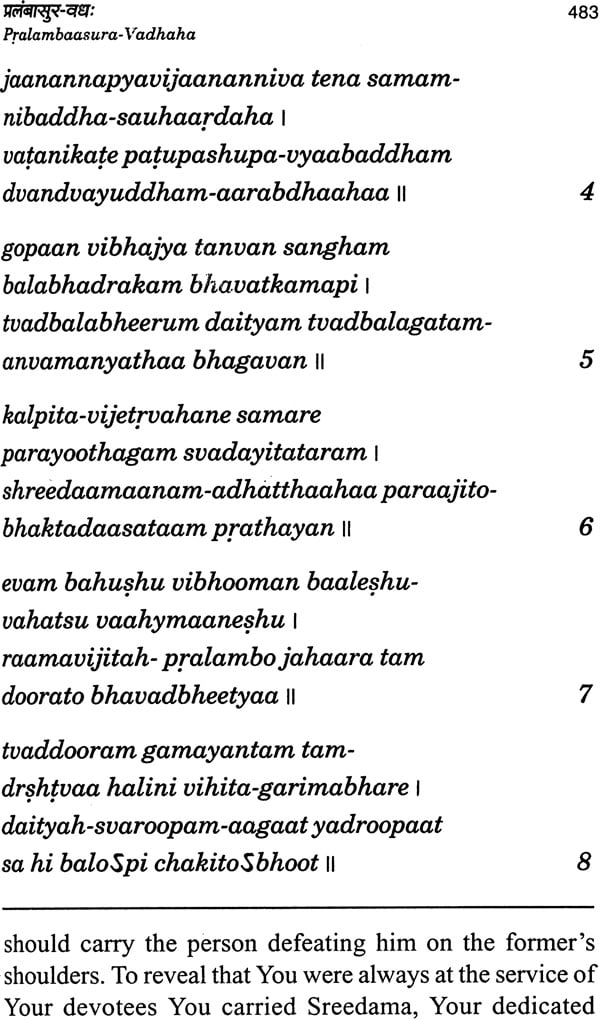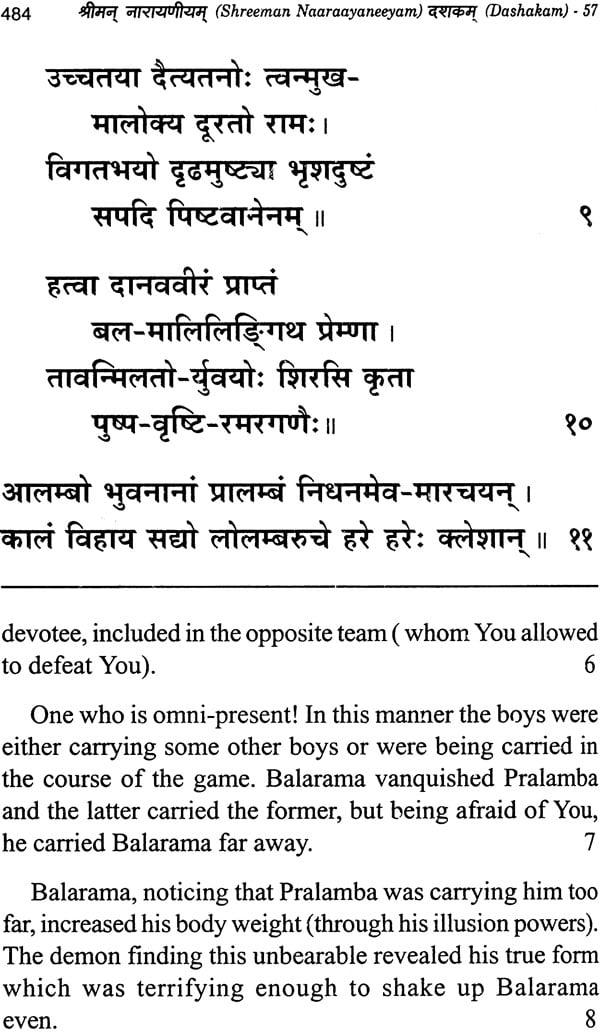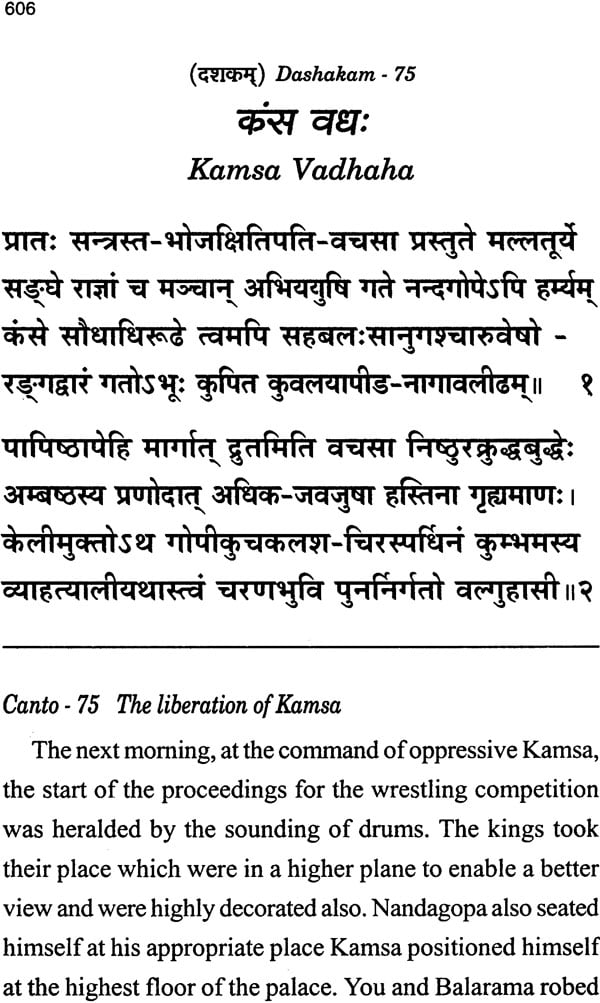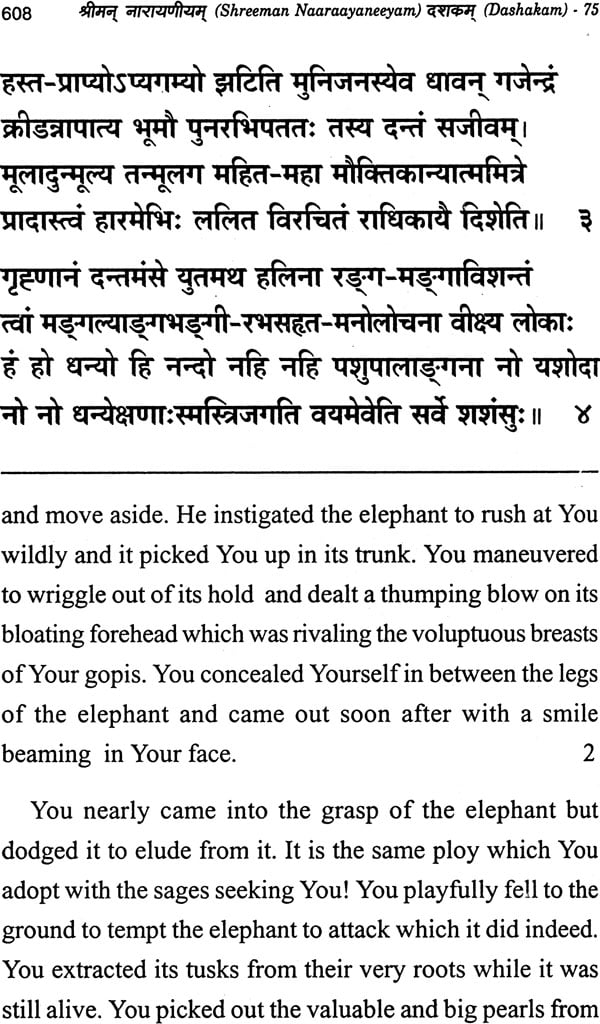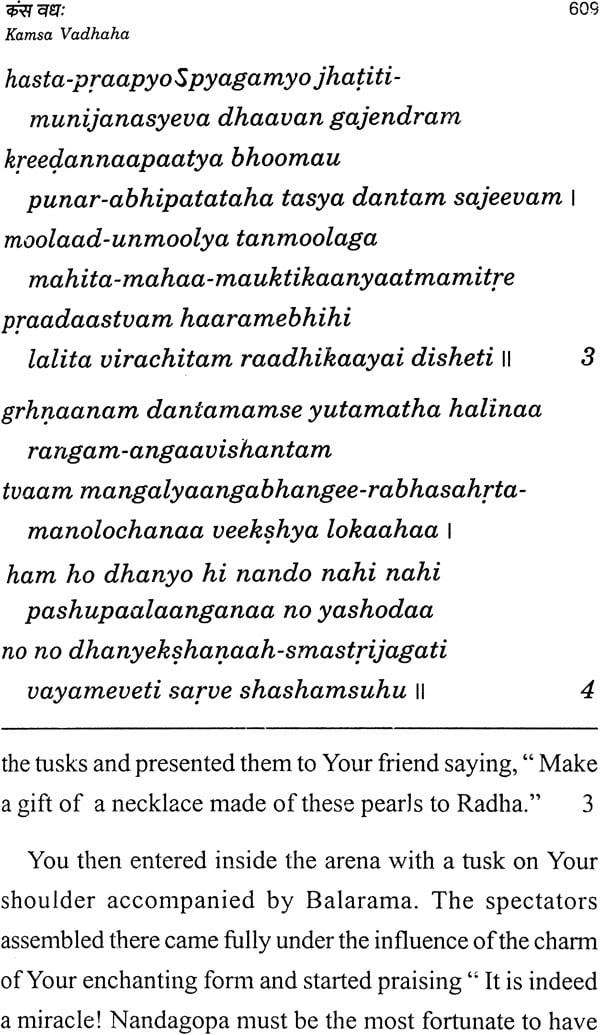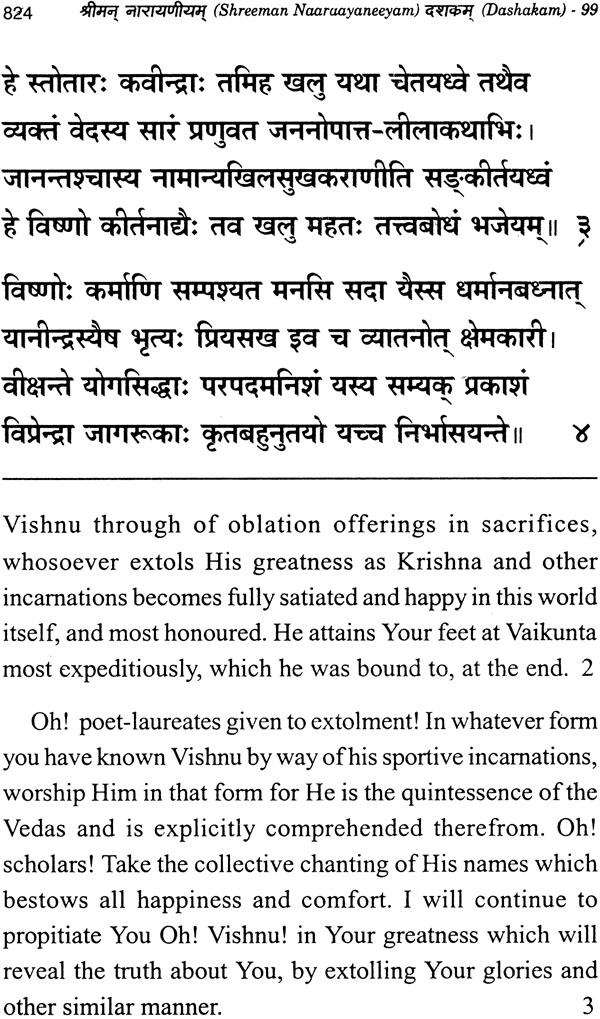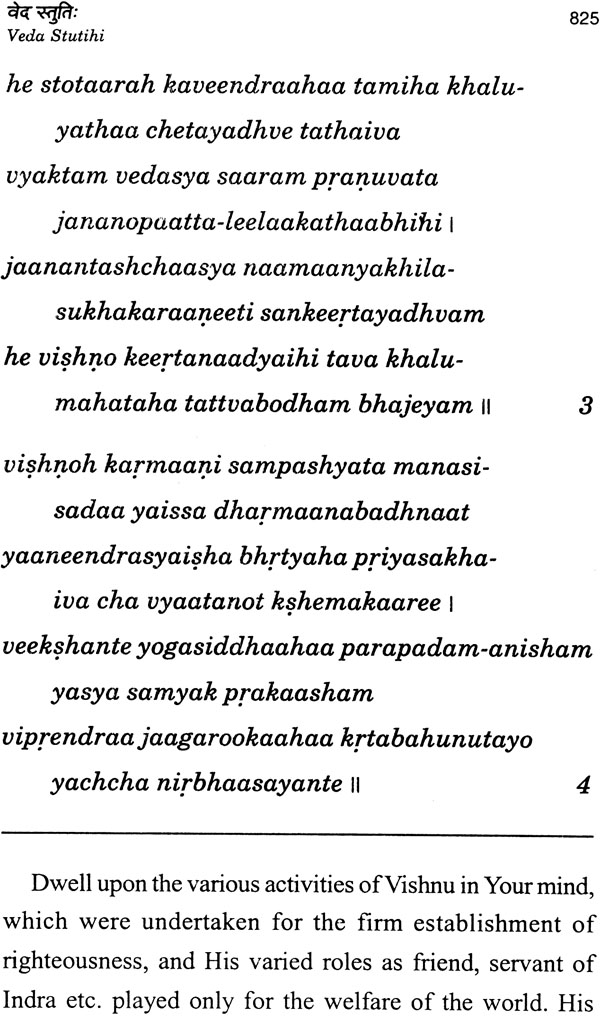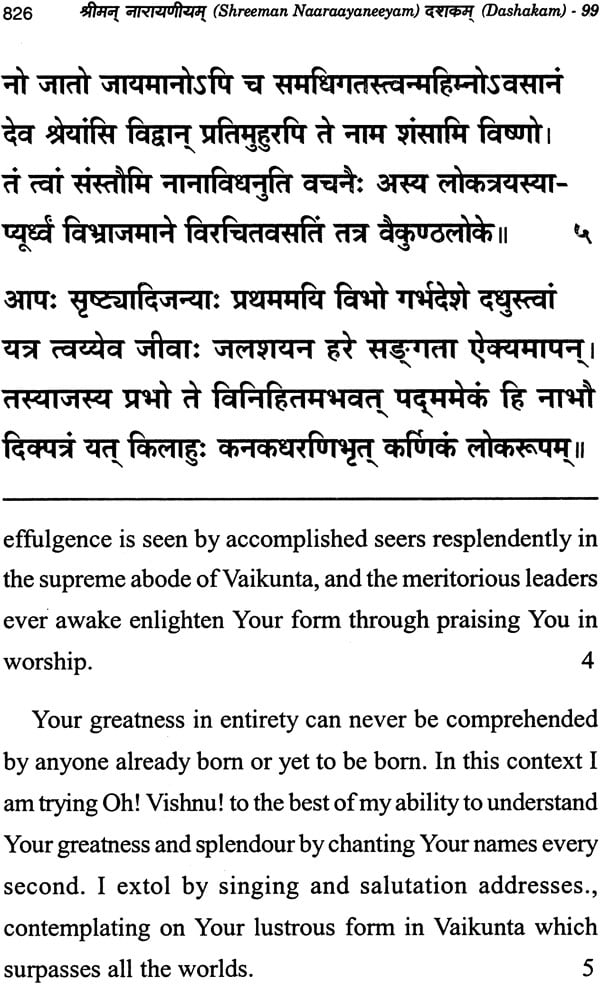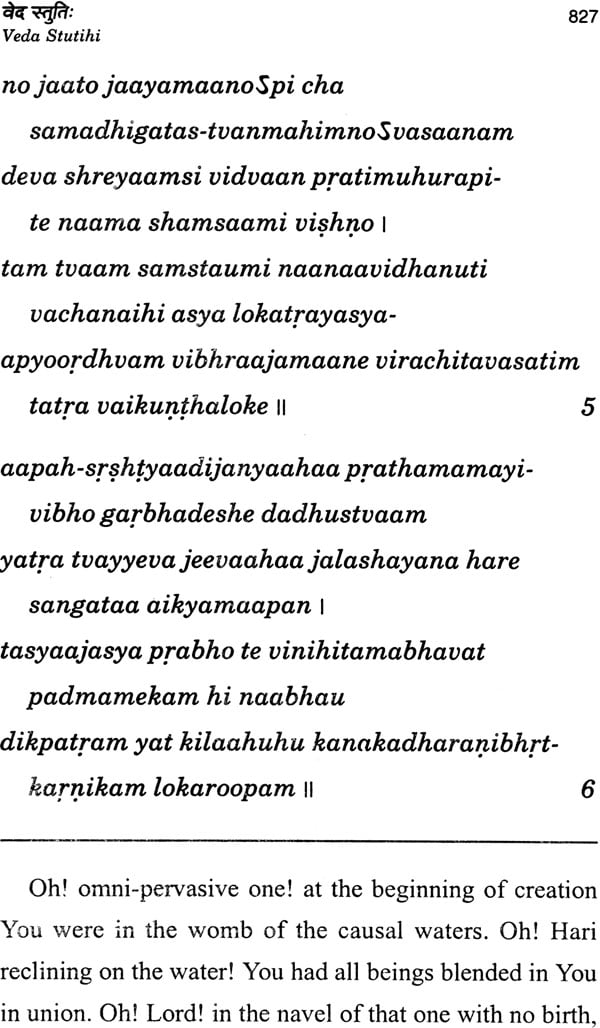
Sri Guru and His Grace
Book Specification
| Item Code: | NAI109 |
| Author: | Swami B.R. Sridhar |
| Publisher: | Sri Chaitanya Saraswat Math |
| Language: | English |
| Edition: | 2013 |
| Pages: | 224 (20 B/W Illustrations) |
| Cover: | Paperback |
| Other Details | 7.0 inch x 4.5 inch |
| Weight | 160 gm |
Book Description
About the Book
To err is human. To err is inevitable for all, being not perfect. Still, no one wants to remain imperfect. There is an element within all that is animate that tends towards perfection. If it were not so, we would feel no want at all. Our tendency towards perfection is certainly very weak and limited; otherwise we could attain the goal at once. Our limited capacity and tendency for perfection makes room for Sri Guru and his Grace.
The imperfect is not so if it is not in need of help, and that also from beyond itself. The perfect is not perfect if He cannot assert Himself or help others, and that too, of His own accord. So the guidance to perfection or Absolute Truth is necessarily a function of the absolute Himself, and the divine agent through whom this function manifests is Sri Guru or the divine guide.
Preface
saksad dharitvena samasta-sastrair
uktas tatha bhavyata eva sadbhih
kintu prabhor yah priya eva tasya
vande guroh sri-charanaravindam
"In the revealed scriptures it is declared that the Spiritual Master should be worshipped like the Supreme Personality of Godhead, and this injunction is obeyed by pure devotees of the Lord. The Spiritual Master is the most confidential servant of the Lord. Thus let us offer our respectful obeisances unto the lotus feet of our Spiritual Master."
Gentlemen, on behalf of the members of the Bombay branch of the Gaudiya Math, let me welcome you all because you have so kindly joined us tonight in our congregational offerings of homage to the lotus feet of the world teacher, Acharyadev, who is the founder of this Gaudiya Mission and is the President-Acharya of Sri Sri Visva Vaisnava Raja Sabha-I mean my eternal Divine Master, Om Visnupad Paramahamsa Parivrajakacharya, Sri Srimad Bhakti Siddhanta Saraswati Goswami Maharaj.
Sixty-two years ago, on this auspicious day, the Acharyadev made his appearance by the call of Thakur Bhakti Vinod at Sri Ksetra, Jagannath Dham at Puri.
Gentlemen, the offering of such a homage as has been arranged this evening to the Acharyadev is not a sectarian concern, for when we speak of the fundamental principle of Gurudev or Acharyadev, we speak of something that is of universal application. There does not arise any question of discriminating my Guru from yours or anyone else's. There is only one Guru, who appears in an infinity of forms to teach you, me, and all others.
In the Mundaka-upanisad (1.2.12) it is said:
tad-vijfianartham sa gurum evabhigachchhet
samit-panih srotriyam brahma-nistham
"In order to learn the transcendental science, one must approach the bona fide Spiritual Master in disciplic succession, who is fixed in the Absolute Truth."
Thus it has been enjoined herewith that in order to receive that transcendental knowledge, one must approach the Guru. Therefore, if the Absolute Truth is one, about which we think there is no difference of opinion, the Guru cannot be two. The Acharyadev to whom we have assembled tonight to offer our humble homage is not the guru of a sectarian institution or one out of many differing exponents of the truth. On the contrary, he is the Jagad-guru, or the Guru of all of us: the only difference is that some obey him wholeheartedly, while others do not obey him directly.
In the Bhagavatam (11.17.27) it is said:
acharyam mam vijaniyan navamanyeta karhichit
na martya-buddhyasuyeta sarva-deva-mayo guruh
"One should understand the Spiritual Master to be as good as I am", said the Blessed Lord. "Nobody should be jealous of the Spiritual Master or think of him as an ordinary man, because the Spiritual Master is the sum total of all demigods." That is, the Acharya has been identified with God Himself. He has nothing to do with the affairs of this mundane world. He appears before us to reveal the light of the Vedas and to bestow upon us the blessing of fullfledged freedom, after which we should hanker at every step of our life's journey.
The transcendental knowledge of the Vedas was first uttered by God to Brahma, the creator of this particular universe. From Brahma the knowledge descended to Narad, from Narad to Vyasadev, from Vyasadev to Madhva, and in this process of disciplic succession the transcendental knowledge was transmitted by one disciple to another till it reached Lord Gauranga, Sri Krsnaa Chaitanya, who posed as the disciple and successor of Sri Isvar Puri. The present Acharyadev is the tenth disciplic representative from Sri Rupa Goswami, the original representative of Lord Chaitanya who preached this transcendental tradition in its fullness. The knowledge that we receive from our Gurudev is not different from that imparted by God Himself and the succession of the Acharyas in the preceptorial line of Brahma. We adore this auspicious day as Sri Vyasa Puja-tithi because the Acharya is the living representative of Vyasadev, the divine compiler of the Vedas, Puranas, Bhagavad-gita, Mahabharata, and Srimad Bhagavatam.
We cannot know anything of the transcendental region by our limited, perverted method of observation and experiment. But all of us can lend our eager ears for the aural reception of the transcendental sound transmitted from that region to this, through the unadulterated medium of Sri Gurudev or Sri Vyasadev, Therefore, gentlemen, we should surrender ourselves today at the feet of the representative of Sri Vyasadev for the elimination of all our differences bred by our unsubmissive attitude. It is accordingly said in the Bhagavad-gita (4.34):
tad viddhi pranipatena pariprasnena sevaya
upadeksyanti te jnanam jnaninas tattva-darsinah
"Just approach the wise and bona fide Spiritual Master. Surrender unto him first, and try to understand him by enquiries and service. Such a wise Spiritual Master will enlighten you with transcendental knowledge, for he has already known the Absolute Truth."
Introduction
To err is human. To err is inevitable for all, being not perfect. Still, no one wants to remain imperfect. There is an element within all that is animate that tends towards perfection. If it were not so, we would feel no want at all. Our tendency towards perfection is certainly very weak and limited; otherwise we could attain the goal at once. Our limited capacity and tendency for perfection makes room for the guide or Guru.
The imperfect is not so if it is not in need of help, and that also from beyond itself. The perfect is not perfect if He cannot assert Himself or help others, and that too, of His own accord. So the guidance to perfection or Absolute Truth is necessarily a function of the Absolute Himself, and the divine agent through whom this function manifests is Sri Guru or the divine guide.
For a seeker of the Absolute Truth, submission to the Guru is unavoidable. A class of thinkers believe, however, that when scientific research is possible, why cannot higher spiritual knowledge also be evolved from within? Such people are ignorant of the most essential nature of Absolute Knowledge, that He alone is the Absolute Subject and all else including ourselves constitutionally stand only as an object to His omniscient vision. It is impossible for the eye to see the mind; it can have some connection with the mind only when the latter cares to mind it. In a similar way, our connection with absolute knowledge depends mainly on His sweet will. We must solely depend on His agent, or the Spiritual Master, through whom He likes to distribute Himself.
Our human society with its finest culture forms but an infinitesimal part of the dynamic Absolute. How, except by the direct and positive method of revelation, dare we hope to comprehend or evolve any conception of the supernatural knowledge of the unconditioned Infinite? All intellectual giants prove themselves but pygmies before the absolute omniscient omnipotence who reserves the right to give Himself away through His own agents alone.
To our best knowledge and sincerity, however, we should see not to submit to a false agent. Here of course, we can't help ourselves very much; because in our present state we are mainly guided by our previous samskar or acquired nature. "Birds of the same feather flock together." Yet, although we are generally overpowered by habit, there is still the possibility of free choice to a certain extent, especially in the human species, otherwise correction becomes impossible, and punishment mere vengeance. Reality can assert itself. Light does not require darkness for its positive proof. The sun by itself can establish its supremacy over all other lights. Before an open and unbiased eye, the Sad-guru (real guide) shines above all professors of phenomenon.
Sri Guru manifests himself mainly in a twofold way as the director from within and the preceptor from without. Both functions of the Absolute help an individual soul-a disciple-to reach the absolute goal. In our fallen state we cannot catch the proper direction to the inner guide, so the merciful manifestation of the preceptor without is our sole help and hope. But at the same time it is only by the grace of the Guru within that we can recognise the real preceptor without and submit to his holy feet.
Contents
| Preface | 11 |
| Introduction | 19 |
| Surrender to Sri Guru | 25 |
| Initiation into Transcendental Science | 35 |
| Descent of the Revealed Truth | 49 |
| The Original Guru | 57 |
| God Consciousness vs. Society Consciousness | 73 |
| "I Command You-Become Guru!" | 87 |
| The Initiating Spiritual Master | 97 |
| Separation from Sri Guru | 111 |
| am-guru and Mantra-guru | 127 |
| The Disciplic Succession | 145 |
| Instructing Spiritual Masters | 147 |
| The Land of Gurus | 167 |
| Servant of the Servant | 175 |
| Lives of the Saints | 185 |
| The Line of Sri Rupa | 199 |
| Explanation of the Math's Logo | 222 |

